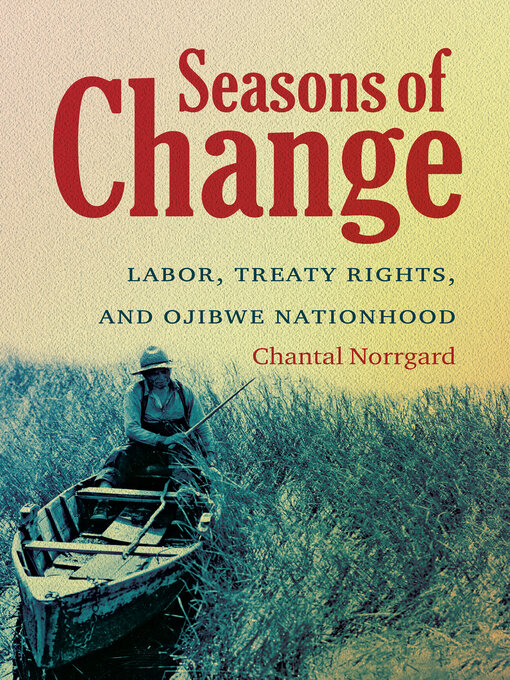- Biography & Memoir
- Business & Finance
- Computer Technology
- Education
- Mathematics
- Medical & Nursing
- Psychology
- Social Sciences
- Personal & Academic Success
- Computer Programming
- Religion & Biblical Studies
- See all nonfiction collections

Drawing on a wide range of sources, including New Deal–era interviews with Ojibwe people, Norrgard demonstrates that while American expansion curtailed the Ojibwes’ land base and sovereignty, the tribe nevertheless used treaty-protected labor to sustain its lifeways and meet economic and political needs — a process of self-determination that continues today.
-
Creators
-
Publisher
-
Release date
August 15, 2014 -
Formats
-
Kindle Book
- ISBN: 9781469617305
-
OverDrive Read
- ISBN: 9781469617305
- File size: 3602 KB
-
EPUB ebook
- ISBN: 9781469617305
- File size: 3602 KB
-
-
Accessibility
-
Languages
- English
Formats
- Kindle Book
- OverDrive Read
- EPUB ebook
subjects
Languages
- English
Why is availability limited?
×Availability can change throughout the month based on the library's budget. You can still place a hold on the title, and your hold will be automatically filled as soon as the title is available again.
The Kindle Book format for this title is not supported on:
×Read-along ebook
×The OverDrive Read format of this ebook has professional narration that plays while you read in your browser. Learn more here.